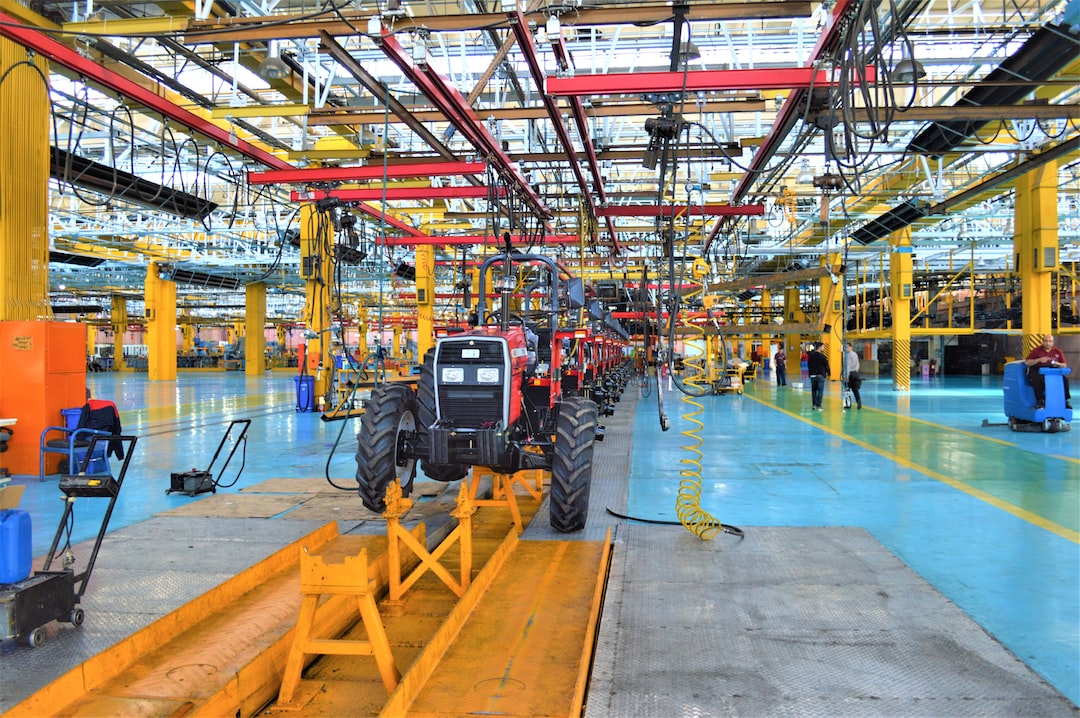Industry 4.0: The Fourth Industrial Revolution in Manufacturing
The world is witnessing the dawn of a new era in manufacturing – Industry 4.0, also known as the Fourth Industrial Revolution. Building upon the foundations of the previous industrial revolutions, Industry 4.0 is characterized by the integration of digital technologies, automation, and connectivity. This transformation is revolutionizing the way products are designed, produced, and distributed, leading to increased productivity, efficiency, and competitiveness in the manufacturing sector.
At the heart of Industry 4.0 lies the Internet of Things (IoT), which enables the seamless exchange of data between machines, products, and humans. Smart factories are being equipped with sensors and actuators that collect and transmit real-time information, enabling manufacturers to monitor and control their operations with precision and agility. From machine performance monitoring to predictive maintenance, IoT enables manufacturers to optimize their production processes, reduce downtime, and minimize waste.
One of the key elements of Industry 4.0 is the concept of cyber-physical systems (CPS). CPS are physical systems that are connected to the digital world, making them capable of autonomous decision-making and self-optimization. This integration of physical and digital systems allows for real-time feedback and adaptation, resulting in more flexible and efficient manufacturing processes. For example, robots equipped with artificial intelligence (AI) can analyze sensor data to adjust their movements and perform tasks with a higher level of precision and speed.
Furthermore, Industry 4.0 is altering the traditional production model by embracing the concept of mass customization. With advancements in digital manufacturing technologies such as additive manufacturing (3D printing) and computer numerical control (CNC) machining, manufacturers can produce personalized products on a large scale, catering to individual customer preferences. This shift towards customization not only satisfies consumer demands but also reduces the need for excessive inventory, resulting in cost savings and increased customer satisfaction.
The seamless connectivity facilitated by Industry 4.0 extends beyond just the manufacturing floor. Supply chains are becoming increasingly interconnected, with real-time data sharing enabling end-to-end visibility and collaboration. This interconnectedness enables manufacturers to anticipate customer demands, optimize distribution routes, and manage inventory levels more efficiently. For instance, with the help of AI and machine learning algorithms, manufacturers can analyze data from various sources, including social media platforms and market trends, to forecast demand accurately and adjust production accordingly.
Additionally, Industry 4.0 is not limited to large corporations. Small and medium-sized enterprises (SMEs) can also benefit from this revolution. Cloud computing and digital platforms provide SMEs with access to affordable and scalable technologies, enabling them to compete with larger players in the manufacturing sector. These technologies eliminate the need for substantial upfront investments in infrastructure, as businesses can leverage the computing power and storage capabilities of cloud providers. Consequently, SMEs can adopt cutting-edge technologies, improve their efficiency, and increase their competitiveness in the market.
While Industry 4.0 presents numerous opportunities for the manufacturing sector, it also brings forth certain challenges. As factories become more digital and connected, cybersecurity becomes a critical concern. The vast amount of data generated by IoT devices and the reliance on interconnected systems make manufacturers vulnerable to cyber threats. Therefore, it is crucial for manufacturers to invest in robust cybersecurity measures and adopt best practices to safeguard their operations and intellectual property.
Moreover, the transformation towards Industry 4.0 necessitates a skilled and adaptable workforce. As machines and automation take over repetitive and mundane tasks, workers need to upskill and reskill to handle more complex and cognitive tasks. This requires investments in education and training programs that equip workers with the necessary digital literacy and technical skills. Governments, educational institutions, and businesses need to collaborate to bridge the skills gap and ensure that workers are prepared for the demands of the Fourth Industrial Revolution.
In conclusion, Industry 4.0 is revolutionizing the manufacturing sector, driving a wave of technological advancements that improve productivity, efficiency, and competitiveness. The integration of IoT, AI, and CPS enables manufacturers to enhance their processes, achieve mass customization, and create smart factories. Furthermore, the interconnectedness of supply chains and the accessibility of technology empower SMEs to thrive in a digital era. However, these advancements also bring challenges, such as cybersecurity risks and the need for a skilled workforce. To fully exploit the potential of Industry 4.0, manufacturers must adapt and embrace the opportunities and challenges that the Fourth Industrial Revolution presents.

